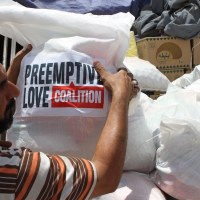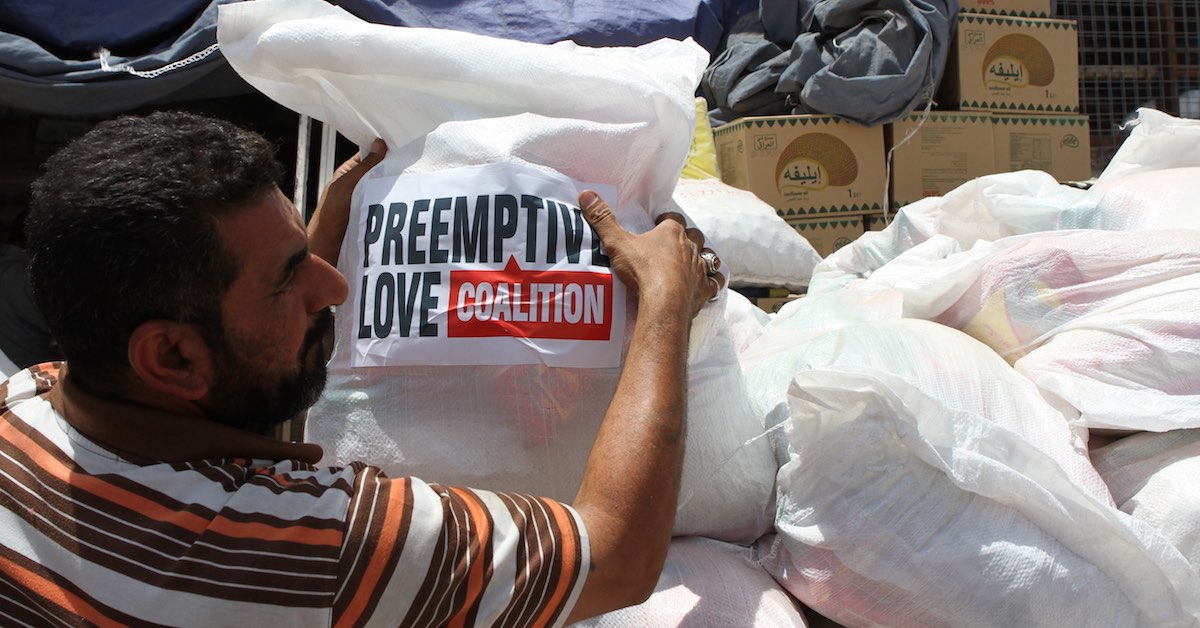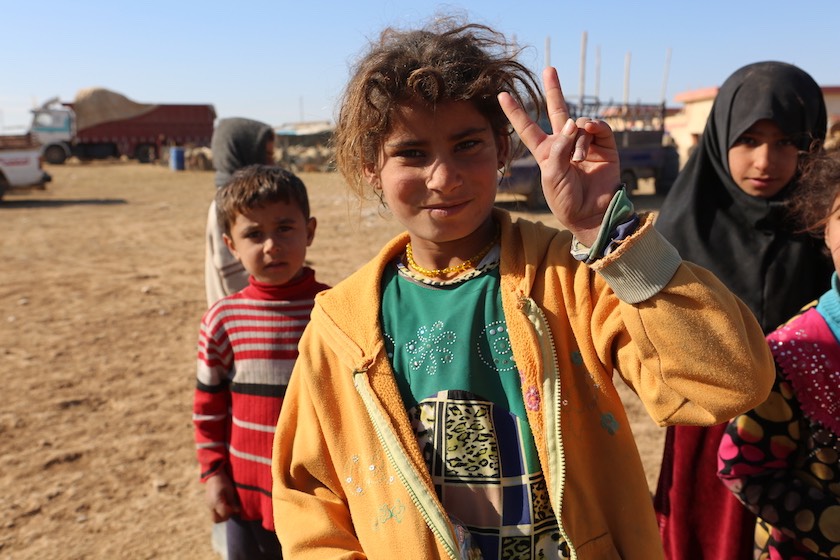
“Uncle, please come and have lunch with us!”
Most parents wonder if what they teach their children is sinking in, if the values they try to model are becoming part of their character.
Zahra’a’s parents don’t have to wonder. The first thing she did when her family received their packet of relief aid—the first aid they’d received in three years of displacement and conflict—was to turn to our staff member, whom she’d never met before, and invite him to lunch.
Zahra’a, a 9-year-old refugee, didn’t need any prompting to show hospitality and generosity. It’s part of her community’s values, and it’s part of her own character.
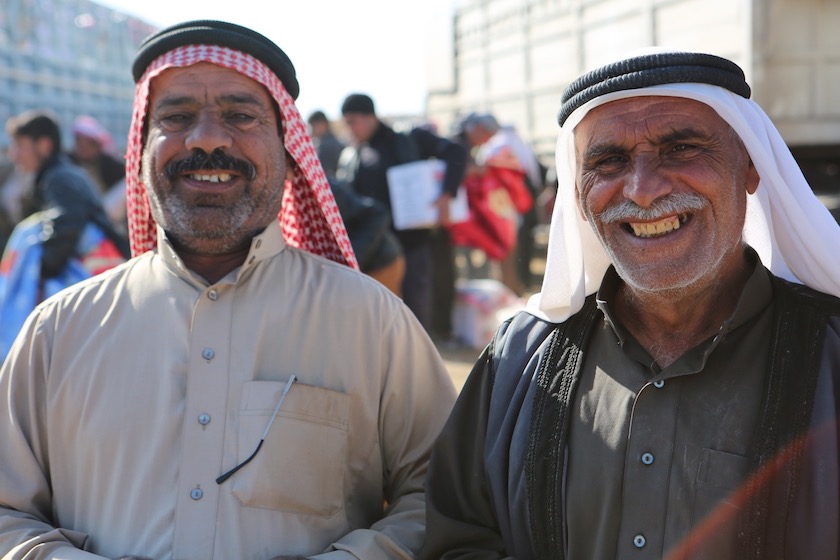
“You brought us food, so we must invite you for lunch!”
Abu Haythem and Abu Abdallah, also refugees, were just as insistent. We told them how grateful we were for the invitation, but that we couldn’t stay because there were more villages to serve, more deliveries to be made.
“But you must stay for lunch!”
Only after much effort did they finally relent. But these men made it very clear: we are welcome with them!
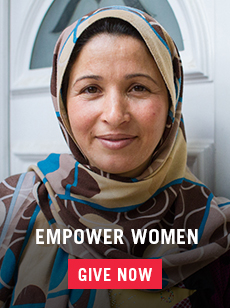
While some debate whether to welcome refugees into their communities—who, how many, from which countries, and after how much vetting—these refugees welcomed us into theirs.
Instead of being skeptical of us as strangers or making sure that we were “safe” before they extended an invitation, they welcomed us into their community with open arms. They chose to love first and ask questions later… over tea.
We’ve written before about the renowned hospitality of Iraqis. It’s part of their culture, and it’s impossible to miss. But experiences like this show how deeply ingrained this sense of hospitality and generosity really is.
Hospitality isn’t something extended just when it’s convenient. Hospitality is the natural, first impulse when they encounter someone new—they treat you as an honored guest.
We always include tea and sugar in our emergency food packs. It might seem frivolous to an outsider, but tea is as essential as water in Iraq—it is impossible to be hospitable without it. Tea provides a sense of normalcy for many. It restores dignity to displaced families, and allows them to host others well. The cost is small, but the impact is significant.
Many refugees we meet tell us that ISIS took everything from them. But here, just a few miles from the front lines, and only a short time since they lived under the rule of ISIS, families show us that their radical sense of hospitality—so much a part of their character—cannot be taken away.
Can we say the same?
Erin Wilson contributed to this story.

